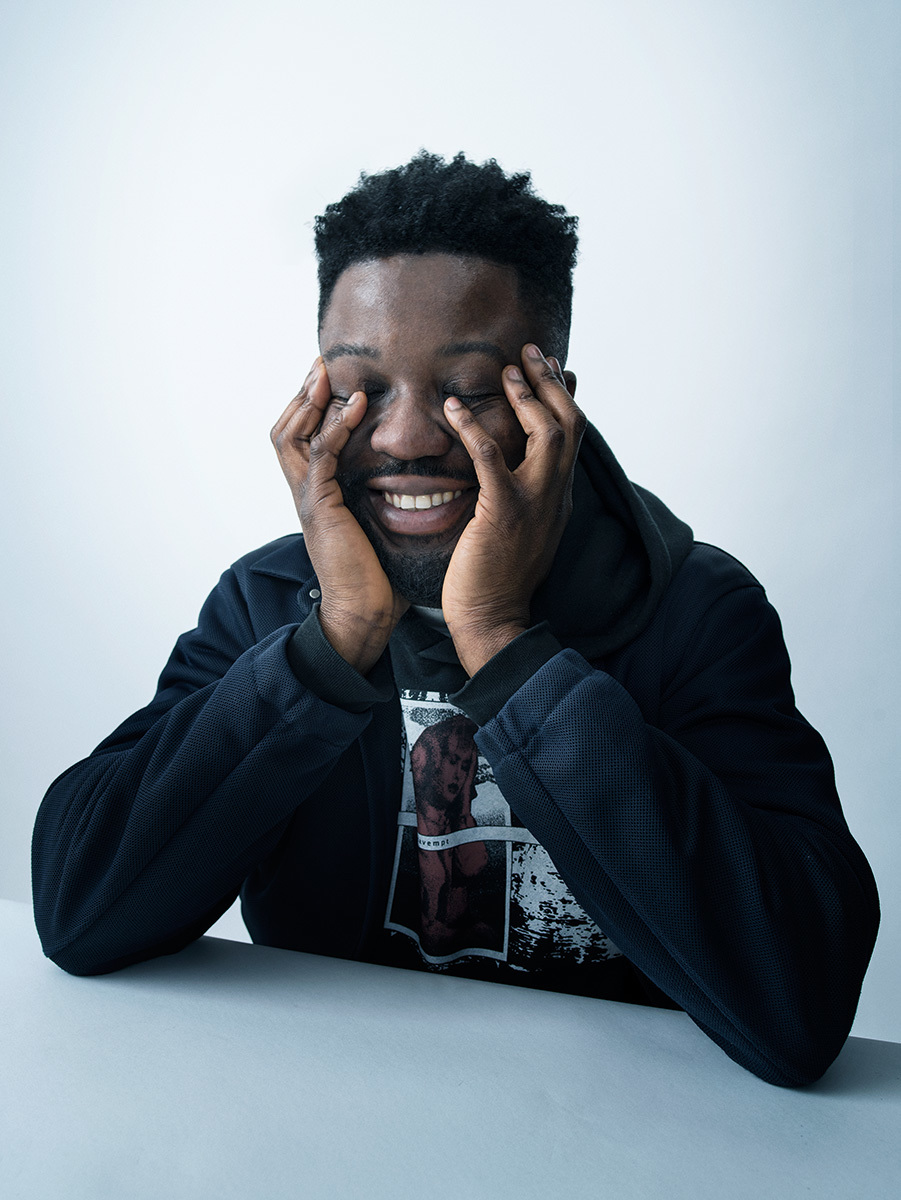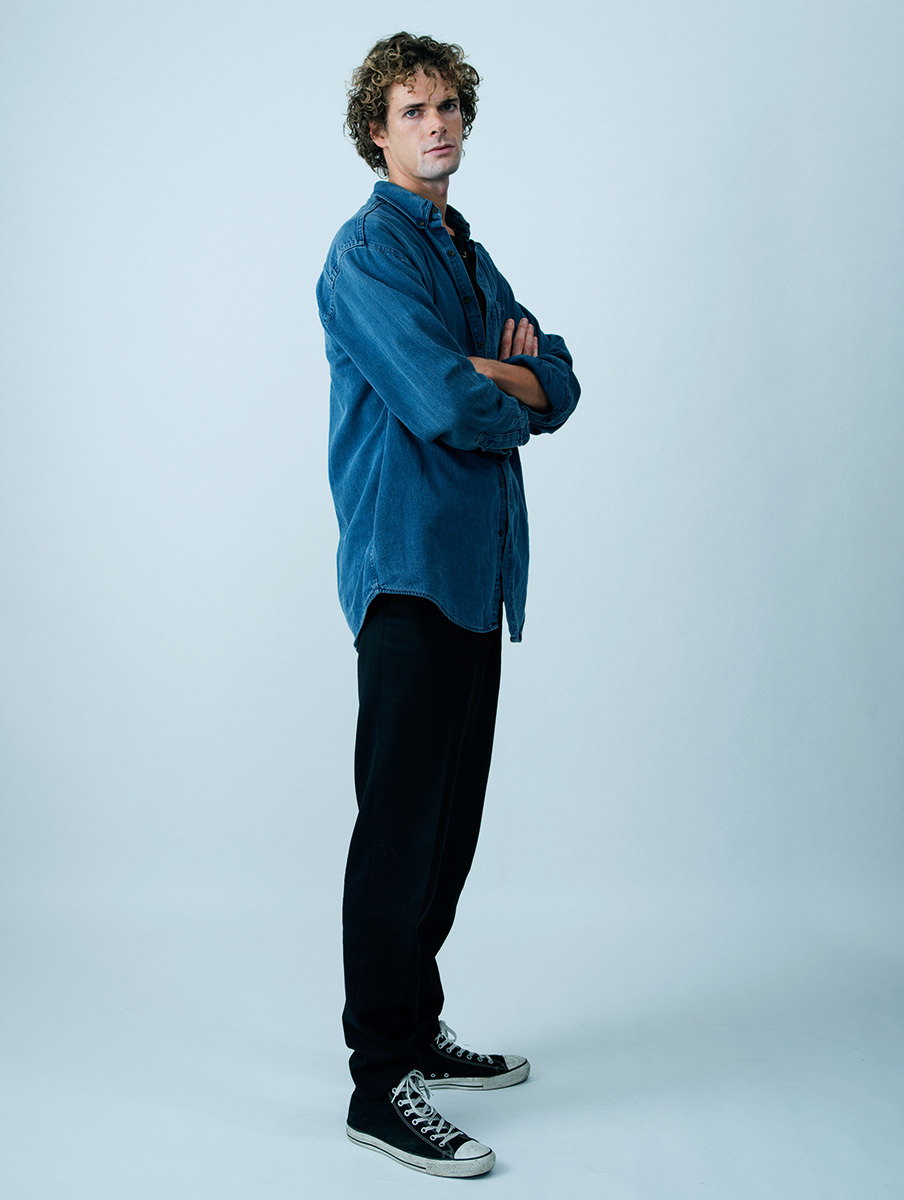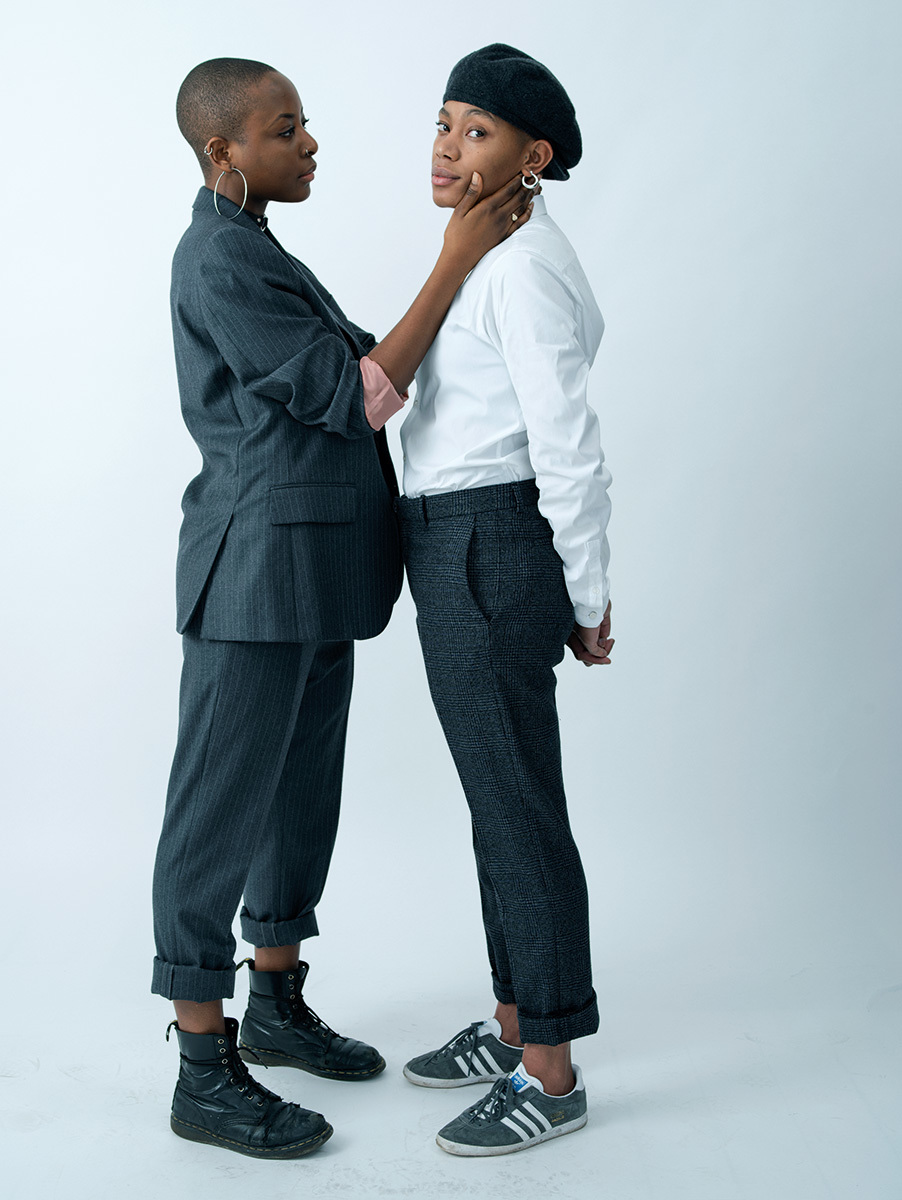These interviews originally appeared in i-D’s The Creativity Issue, no. 348, 2017.
Tia Simon-Campbell and Nadine Davis, BBZ
BBZ is the QTIPOC rave-cum-art-collective based in south London which is possibly the most inclusive turn-up of all time. Ironic given it was founded on the profound feeling of isolation. Photographer Tia Simon-Campbell and her cinematographer partner Nadine Davis didn’t see themselves represented anywhere within queer London life.
“As beautiful as it is to live in a city deemed liberal and multicultural, there’s a very apparent marginalisation of certain groups’ experiences from mainstream media and the consciousness of the privileged,” Nadine says. “To be frank we had no choice but to create a space dedicated to the voices of the QTIPOC community.” Since then, BBZ has taken over a number of spaces in Peckham and Deptford with their mix of painting, party tunes, and people of all binaries. They have also opened a gallery and studio space focused on supporting QTIPOC artists. “Holding space for our community is so rewarding but exhausting in its own right,” Nadine admits. “With it being just the two of us we can be a little stretched thin but there’s nothing we would rather work harder at.” Amen to that.
Last October, BBZ took over the V&A as part of gal-dem’s Friday Late event. “We can not tell you how liberating that moment was for so many of us. Considering the structures on which an institution like the V&A has been built, having so many black and brown queer bodies grinding, death dropping and letting loose to bashment, grime and ballroom house in that environment felt like the best kind of interruption,” Nadine grins. Partying is becoming political, whether that’s a conscious decision on behalf of party-goers or party-throwers. “We had no intention of BBZ being a politically charged space, nonetheless it dawned on us that as queer women and gender queer POC just existing is a political statement in and of itself.” Amen to that as well.
Text Hattie Collins. Styling Max Clark. Hair Cyndia Harvey at Streeters using Fudge Professional. Make-up Lucy Bridge at Streeters using using Chanel Les Indispensables de L’Été and Chanel Blue Serum.

Femi Adeyemi, NTS Radio
It’s easy to take online radio for granted in 2017; there now exists a wealth of weird, wild and wonderful platforms offering thought-provoking programming that encompass diverse hosts, interesting discussion and, essentially, really, really well curated music. But back in April 2011 when Femi “Mr Wonderful” Adeyemi started NTS with £3000, online radio was a barren wasteland.
“The mainstream stations and pirate broadcasters dominated the landscape, but their programming – whilst serving its place – was a bit too restrictive,” Femi recalls. “I felt there was a gap for those whose taste in music and general interests covered a much wider range.” Stations tended to stick roughly within genre, rather than roam free, and it was tough for the inexperienced to get a shot at broadcasting. Bored and frustrated, Adeyemi decided to drop everything, including looking for a job, instead creating a career for himself – albeit in unchartered territory. “I decided to teach myself how to stream audio online.”
With its home in Dalston’s Gillett Square, and as inspired by East Village Radio as it was Rinse FM, NTS was born as a community radio station where an ecosystem of new talent was encouraged – if you were good, you were good. And NTS reached far further than the confines of Hackney; people from Brooklyn to Burkina Faso were able to lock in to a station unburned by boundary of geography or genre. The station has since hosted shows by everyone from The Wire magazine to Floating Points and Young Turks.
About to celebrate its sixth birthday at, where else, Corsica Studios, with Venus X, Charlie Bones, and A.G and with studios in both London and Los Angeles, Femi believes it’s the foundations of NTS that continues its continued success. “It’s what it was always about — the quality and the diversity of our programming.”
Text Hattie Collins

Blaise Belville, Boiler Room
Despite the negative rhetoric surrounding London’s nightlife over the last few years, two words have become synonymous with the capital’s continued relevance and services to underground music: Boiler Room. To those who don’t know, founder and CEO Blaise Bellville describes Boiler Room as “Music TV for the internet age; televising underground music as it happens from around the world to a massive online community.” But to most of London, this goes without saying.
“Boiler Room began as a weekly hangout, as a hobby more than anything else,” Blaise continues. It started life, quite literally, in a crumbling boiler room that could fit in little more than turntables, a CDJ and a low quality camera. “We created a new video broadcast medium that people now think of as the music video for the DJ. That medium exploded within a year, before we had a website or a logo, we had millions of monthly viewers and a brand that was recognised globally.” What Blaise has created, in seven short years, is nothing short of a music revolution, offering a “window into scenes and sounds from every corner of the globe,” and giving local talent a chance to shine on a global level.
“I’ve seen a lot of important artists from the London scene raise their international profile and tour oversees far earlier in their careers than was the norm pre-Boiler Room.” Putting London’s unique sound on the world’s stage and creating a cultural movement in the process, Boiler Room has changed the game. But to 32-year-old Blaise, they’re only getting started. “In the last few years we’ve built the foundation on which we can now start to truly rebuild a home for watching music on screens around the world.”
Text Ryan White
Credits
Photography Tim Walker
